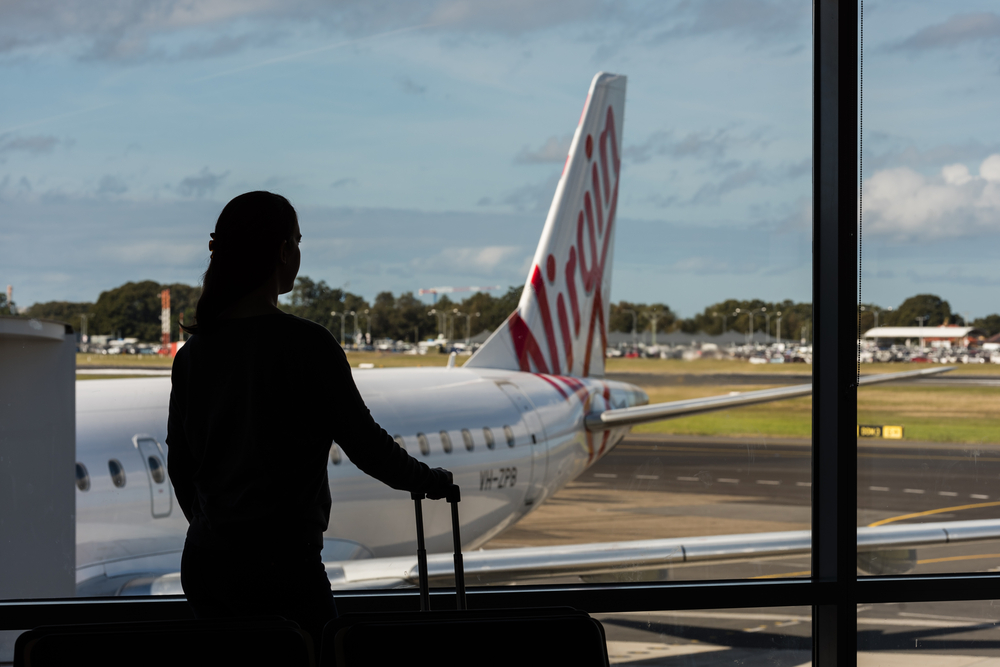The recovery efforts include the reintroduction of 10 additional Boeing 737-800 aircraft and the planned return of more than 80 per cent of the airline’s pre-pandemic domestic capacity by mid-June. Network operational changes will also allow the airline to redeploy Boeing 737 aircraft to other parts of its network over the coming months.
After a year of rolling state-based restrictions, pent-up travel demand is supporting the launch of several new and expanded services and frequencies on key leisure and business routes. Virgin Australia Group is committed to maintaining a market share consistent with its pre-COVID position.
Speaking from a cabin crew training school in Brisbane, Virgin Australia Group CEO Jayne Hrdlicka said the airline was strongly focused on its domestic recovery program, which includes delivering experiences guests love while providing great value for leisure travellers, corporates and SMEs.
“We are building a strong and disciplined business, obsessed with providing our customers the very best of Virgin Australia travel experiences,” said Ms Hrdlicka.
“More aircraft means more flying, and with easing travel restrictions, there are more opportunities to further support domestic tourism and the nation’s economic recovery from COVID-19.
“Today, we are operating around 850 weekly return flights, and as we approach the June school holidays, we will add another 220 return flights per week to our schedule. By mid-June, we expect to be operating more than 80 per cent of our pre-COVID domestic capacity.
“We’re hopeful that domestic border closures will soon be a thing of the past and are continuing to see positive signs of consumer recovery. As an example of this, we’ve had multiple record-breaking sales days of half-priced fares, with more than 75 per cent of the tickets being booked for travel from May onwards.
“All of this will provide much-needed certainty for hundreds of our team members, who through no fault of their own, were required to give up their jobs because of the extraordinary impacts of the pandemic. We are thrilled to be able to welcome many of them back to Virgin Australia.”
Commitment to Jobs
The creation of more roles at the Company will see more than 220 cabin crew return to the skies from the airline’s discontinued long-haul international, ATR regional and Tigerair Australia operations. The new recruits will join one of 15 cabin crew training schools over the next two months.
In addition, a major recruitment drive to fill more than 150 new cabin crew roles, including an expression of interest for future positions has also begun today, with applications from other Virgin Australia employee groups being assessed as a matter of priority. External expressions of interest can be made via the airline’s careers website.
Fleet and Network
The Company has finalised arrangements to re-introduce 10 Boeing 737-800 aircraft which had previously been operated by Virgin Australia, with further aircraft under investigation. The first three aircraft will join the airline’s mainline fleet this month while the remainder are set to progressively enter service by October.
The Company is finalising wet-lease arrangements with Alliance Airlines to operate Fokker 100 services on behalf of Virgin Australia between Brisbane-Alice Springs and Brisbane-Mt Isa from 19 April 2021. The move will allow Virgin Australia to explore more efficient ways of managing capacity and frequencies to support choice and convenience for regional customers.
Using an Airbus A320 aircraft, Virgin Australia Regional Airlines (VARA) will also move to operate select services on mainline routes between Perth-Darwin, Perth-Broome and Perth-Adelaide from next month. These arrangements will support the redeployment of the Boeing 737 aircraft to other markets.
Between now and the June school holidays, the airline will add more than 220 return flights per week to its schedule, offering new and extended seasonal services and expanded frequencies on key business and leisure routes. Trans-Tasman services to Queenstown are set to recommence ahead of school holidays on 18 September 2021.
New and extended seasonal services include:
- Melbourne – Hamilton Island (3 flights per week from 08 June to 31 October)
- Melbourne – Darwin (daily flights from 10 June to 31 October)
- Brisbane – Launceston (4 flights per week from 17 June to 25 July) – seasonal extension
- Melbourne – Ballina Byron Bay (5 flights per week from 09 June to 31 October) – seasonal extension
- Brisbane – Queenstown (4 flights per week from 18 September)
- Sydney – Queenstown (4 flights per week from 18 September)
Expanded frequencies include:
- Sydney - Perth (up to 4 flights per day by 23 May)
- Melbourne - Perth (up to 6 flights per day by 23 May)
- Sydney - Adelaide (up to 5 flights per day by 23 May)
- Melbourne – Adelaide (Up to 9 flights per day by 20 June)
- Brisbane - Adelaide (up to 5 flights per day by 20 June)
- Sydney - Gold Coast (up to 9 flights per day by 20 June)
- Melbourne - Gold Coast (up to 8 flights per day by 20 June)
- Melbourne - Sydney (up to 25 flights per day by 20 June)
- Melbourne - Brisbane (up to 13 flights per day by 20 June)
- Brisbane - Sydney (up to 15 flights per day by 20 June)
- Sunshine Coast - Melbourne (up to 3 flights per day by 20 June)
- Sunshine Coast - Sydney (up to 3 flights per day by 20 June)
- Brisbane - Townsville (up to 4 flights per day by 20 June)
- Brisbane - Mackay (up to 4 flights per day by 20 June)
Ahead of the resumption of short-haul international travel beyond New Zealand, the company continues to consider relevant government and health advice around vaccination and any decisions in line with passenger and crew health and safety.
Tags: Virgin Australia
